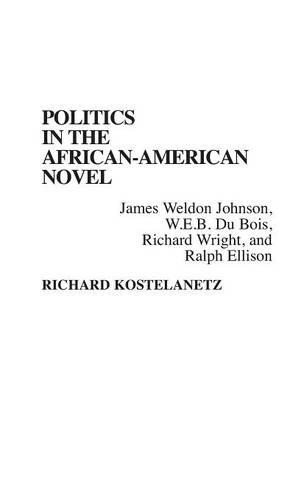
Politics in the African-American Novel: James Weldon Johnson, W.E.B. Du Bois, Richard Wright, and Ralph Ellison
(Hardback)
Publishing Details
Politics in the African-American Novel: James Weldon Johnson, W.E.B. Du Bois, Richard Wright, and Ralph Ellison
By (Author) Richard Kostelanetz
Bloomsbury Publishing PLC
Praeger Publishers Inc
19th April 1991
United States
Classifications
Tertiary Education
Non Fiction
Literary studies: c 1900 to c 2000
813.009358
Physical Properties
Hardback
200
Description
One of America's most distinguished independent artists/intellectuals, Richard Kostelanetz, has written a prescient volume that uses, as a starting point, the philosopher Robin Collingwood's notion the "the historian and the novelist have much in common, for both atempt to define the largest lines of historical development". Aside from the introduction and conclusion, which were specifically written for this publication, these insightful chapters on four outstanding African-American novelists were composed and appeared in journals in the late 1960s. Kostelanetz saw the writing ont the wall and told readers about it more than 20 years ago. In his analysis of the novels written by pioneering Black novelists James Weldon Johnson (1871-1938), W.E.B. Du Bois (1868-1963), Richard Wright (1908-1960), and Ralph Ellison (1914-), Kostelanetz culls their political meanings and interprets experience suggestive of political meanings. Kostelanetz places these meanings into a chronological framework that transforms the book from a political or literary history into a history of ideas in literature. This painstaking analysis of fiction - to deduce themes that are then interpreted a intellectual history - is an original scholarly approach to these novels.
Author Bio
RICHARD KOSTELANETZ, following his tenure as Fulbright Scholar at King's College, University of London, and as Visiting Professor of American Studies and English at the University of Texas at Austin, has written many books of poetry, fiction, criticism, and cultural history. He has also edited more than two dozen anthologies of art, literature, and criticism. His essays have been published in scores of periodicals around the world. Among his current projects are books about the art of radio in North America, contemporary avant-garde literature, and the maturity of American thought from 1945 to 1967.
